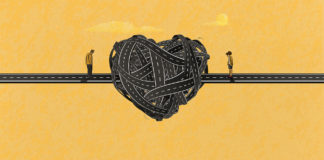Portrait of a mother
Inexplicable joy, sleepless nights, fulfilled dreams, well-founded or irrational fears, wide smiles, bitter tears, unexpected rewards, and sacrifices—they all intertwine in the life of a responsible parent in such a way that it is not easy to grasp how difficult and beautiful they can be, all at the same time.
Teenagers and religion
In A History of Young People in the West, Giovanni Levi and Jean-Claude Schmitt posit that, in the West, adolescence is first and foremost a social-cultural construction, and therefore a cultural product. They considered it at most subsidiarily as a stage in the physiological process of growing up.
“In remembrance of me” | A God who does not forget us
"Is it not too sadly true that we can recollect anything but Christ, and forget nothing so easy as Him whom we ought to remember?"—Charles Spurgeon
Mistakes in identifying errors in the Bible
Are there errors in the Bible? If so, what kind of errors and how do they affect its inspired character? Are there contradictions between the authors of the Bible? How are these explained?
The portrait of Jesus (I): Jesus, the Saviour
Salvation is not a concept Christianity discovered. In a broad sense, salvation means rescue from any danger or adverse situation.
Your child’s digital footprint
Should my child’s photos be displayed on Facebook—even if I were to amp up my privacy settings? Before Elliott, my son, was born, I was adamant that all online footprints of him would be non-existent, or at most, kept to a minimum. I knew anything I posted on the internet featuring Elliott would stay there forever, and I didn’t want him living with...
COVID-19: How do you recognise a conspiracy theory in a pandemic?
The Colorado beetle that threatened the potato crop of the former GDR in 1950 might have been an American method of sabotage against the Eastern bloc. A sinister German plot might have been the cause of the Spanish flu. Perhaps AIDS emerged as a biological weapon developed by the United States and has been tested on prisoners and minorities. Every crisis humanity has...
She loves me not | Friendship and the friend zone
When I was a child, I used to take a branch of locust tree and, plucking the leaves one by one, I would say: She loves me… she loves me not… she loves me… she loves me not. I cannot remember who I was thinking of when doing this; too many years have gone by since then. However, the refrain is still very...
“One Thousand Gifts: A dare to live fully right where you are”
"One Thousand Gifts" describes the beautiful revolt of a soul that does not want to be crippled by what it has lost, but to pierce its own suffering like an arrow springing from the bow of grace, a leitmotif of the whole book.
Myths about vegan diets
For some people, being vegan is part of their lifestyle, but others cannot conceive of missing out on dairy products, meat or eggs. This could be explained by several myths that revolve around these diets.
The disgrace of (anti-)Catholicism
This topic seems to be a matter of picking through the rubbish in order to survive. Who cares about Protestant protest today? Anti-Catholicism, like anti-Protestantism, represents natural and culturally legitimate attitudes that can be judged by their motivation, spirit and content—aspects that are apparently obscure but, when examined, become very transparent.
How do Christians deal with loneliness?
Divorce, widowhood, or celibacy are just a few of the faces of loneliness, an experience which Christians also deal with at some point. Those who have often crossed paths with it, say that loneliness is truly a flowering wilderness: a place that is isolated but where deep spiritual lessons are learned.
Tears, war, and tulips: a day among the Ukrainian refugees at the Siret Customs Point
The wind is blowing and it is snowing at the Siret Customs Point. Refugee groups stream by, women with children clinging to them, and the words of a little girl from another war, concluded almost eight decades ago, keep running through my mind: “And this was imprinted in my mind, that when my father is not home, it is war.”
The Expanse: Big Sci-Fi tackles bigger questions
Out of all the genres of storytelling that we see in the media we consume, science fiction holds a special place in my heart. While some may pine for the comfort of romance, the tension of a modern-day thriller or the stimulation of a well-crafted fantasy world, I’ve always been drawn to science fiction's ability to create a rich canvas out of imagined futures.


























